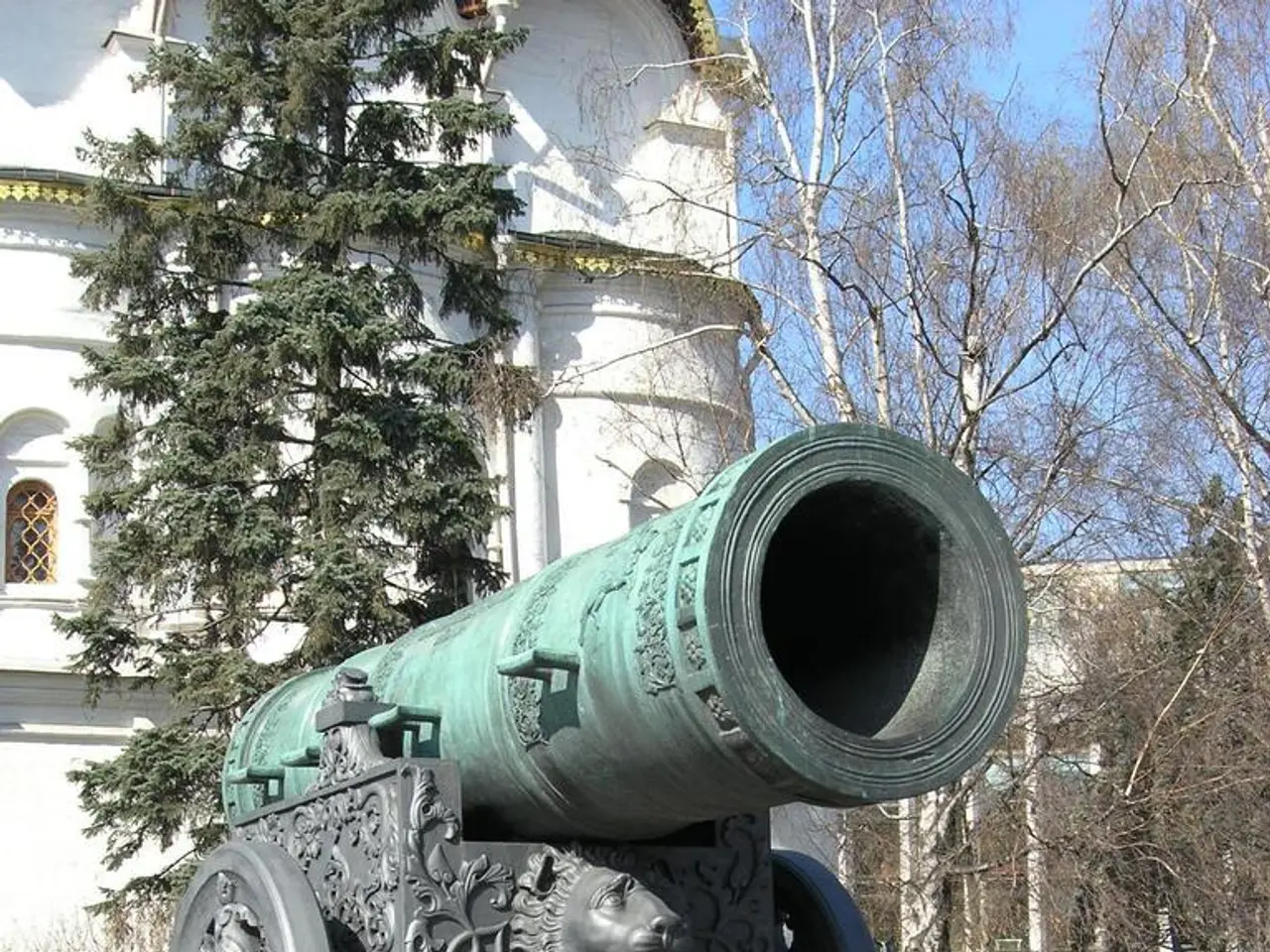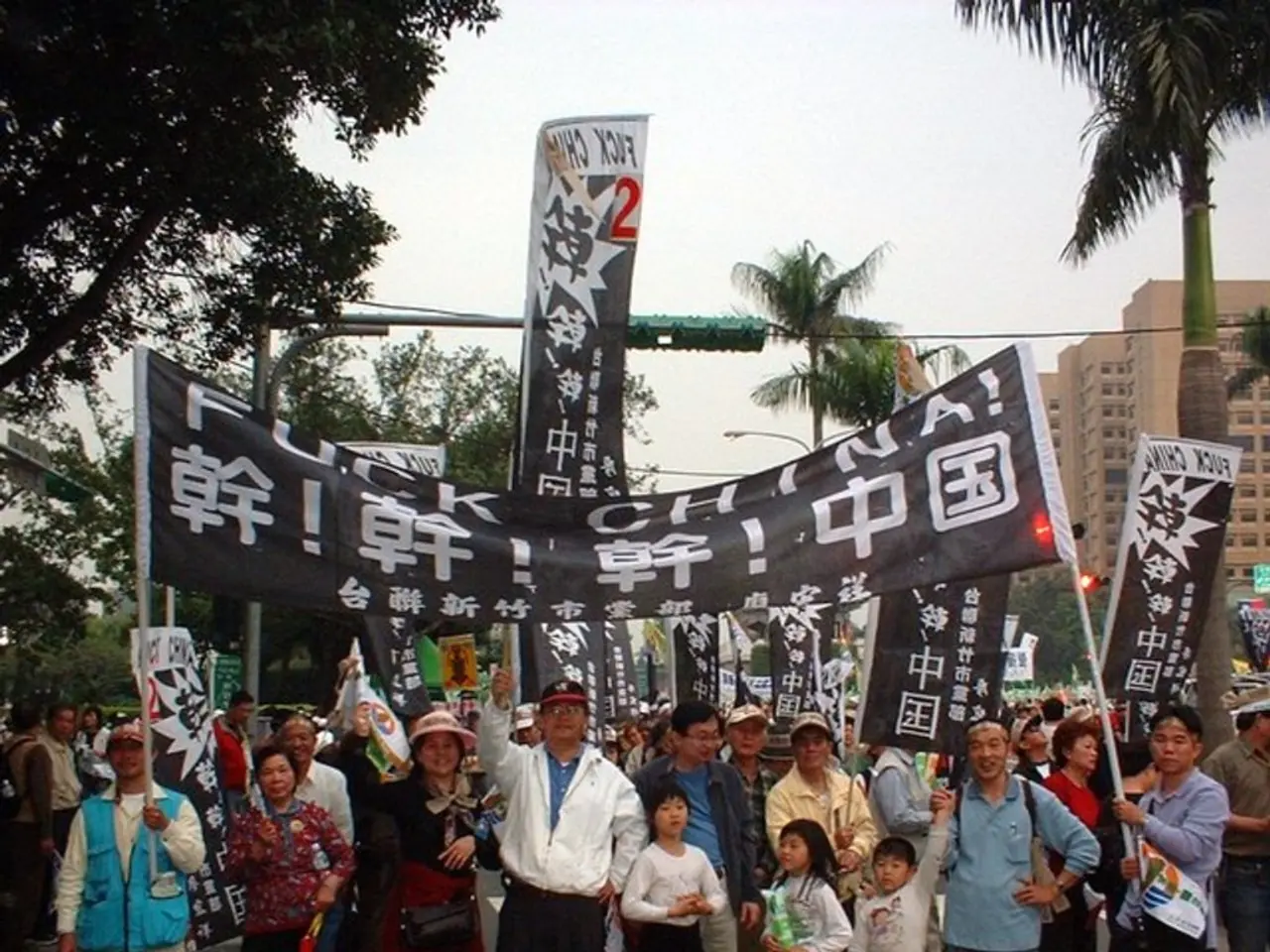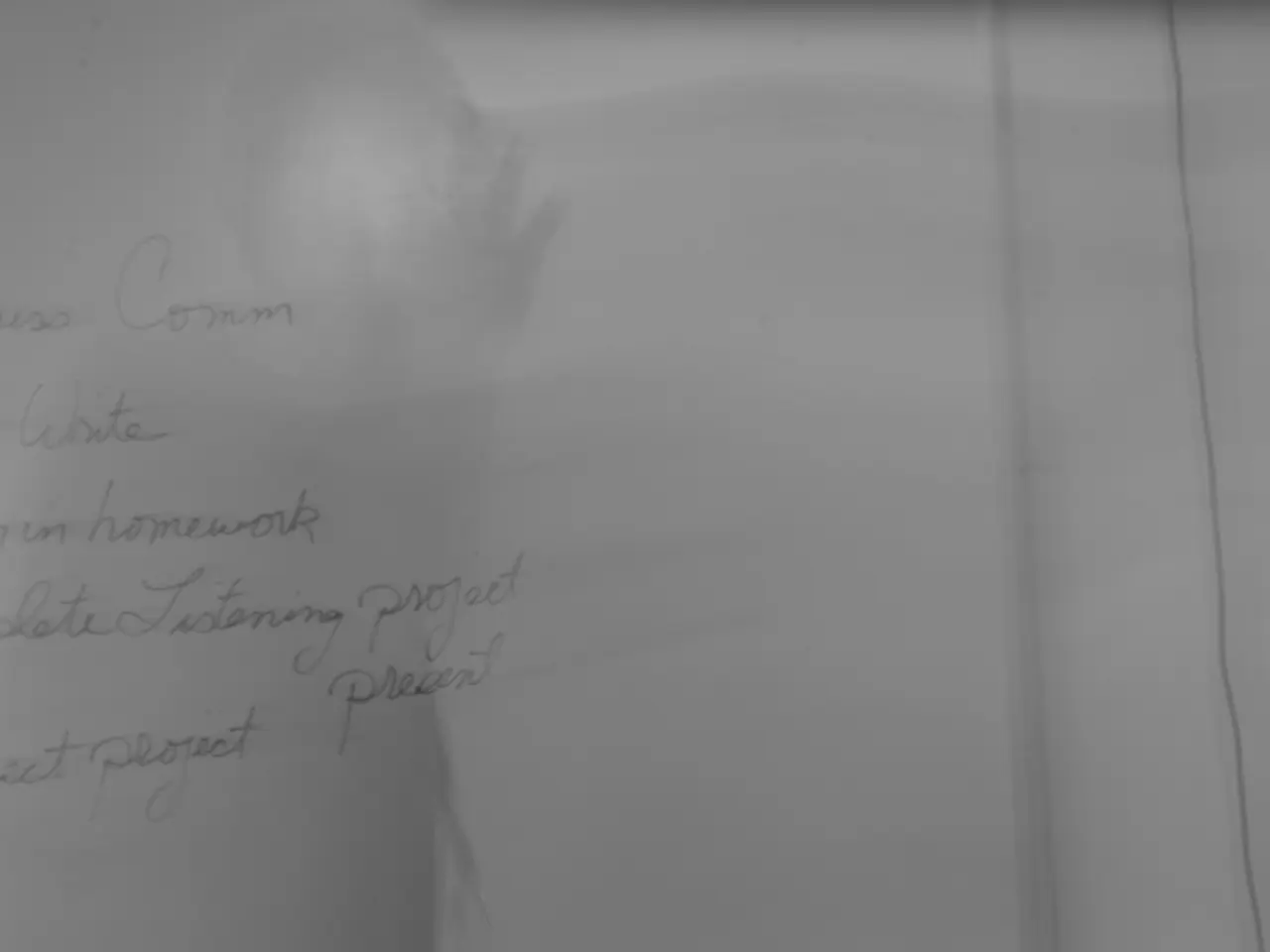Wagner's Aborted Coup: Potential Implications for Putin and Russia's Military Campaign in Ukraine due to Prigozhin's Strategic Movements
In a surprising turn of events, Yevgeny Prigozhin's initial criticism of Russia's defence minister, Sergey Shoigu, and the Chief of the General Staff, Valery Gerasimov, has escalated to direct criticism of Vladimir Putin himself. This rebellion, as seen in the June 2023 Wagner Group mutiny against the Russian military leadership, could have significant and far-reaching implications for Putin’s regime and Russia’s ongoing war in Ukraine.
Political Stability of Putin’s Regime
The rebellion has exposed fractures within Russia’s power elite, challenging Putin’s absolute control over the military and security apparatus. It has undermined the image of a unified leadership, potentially eroding trust among the security forces that are crucial to Putin’s rule. In response, Putin might initiate widespread purges to reassert control, creating instability through reduced cohesion among senior officials and military commanders.
Impact on the Russian Military and War Effort in Ukraine
Wagner troops, known for their crucial role in frontline operations, have suffered horrendous losses in Bakhmut, with over twenty thousand of its fighters killed, primarily from its penal battalion prisoner assault squads. The rebellion could degrade the effectiveness of Russian military operations in Ukraine, leading to operational disruption. There could also be restructuring within military command to prevent similar rebellious outbreaks, possibly sidelining or dismantling private military groups that have been key proxies for Putin in the war.
Internal Power Dynamics and Rivalries
The rebellion highlights competitive dynamics between Putin’s loyalists and independent power brokers like Prigozhin, potentially accelerating factional battles within the Kremlin and security services. Traditional military institutions may seek to reassert dominance over paramilitary groups, possibly shifting the balance of power back towards the official Ministry of Defense.
Domestic Public Opinion and Social Stability
The rebellion risks undermining public confidence in the government, especially if it leads to economic or military setbacks. If trust continues to break down, command structures will deteriorate, logistics will be redirected from the front lines, and soldiers may desert, leading to potential collapse of the armed forces.
International and Geopolitical Ramifications
Russia’s adversaries, including Ukraine and NATO countries, may interpret the rebellion as a sign of weakness or instability, potentially emboldening Ukrainian resistance and diplomatic/military support from the West. The internal discord could make Russian decision-making less predictable, complicating negotiations or ceasefire efforts.
In summary, Prigozhin’s rebellion represents a serious challenge to Putin’s control, potentially weakening Russia’s military capacity and political cohesion at a critical juncture in the Ukraine conflict. While Putin’s regime is likely to respond with harsh measures to restore order, the event reveals underlying vulnerabilities that could have long-term consequences for both the Kremlin’s stability and the course of the war.
The revelation of power struggles within the Russian power elite, instigated by Yevgeny Prigozhin's rebellion, has the potential to jeopardize the military intelligence required for Putin's regime, creating uncertainty and unpredictability in strategic decision-making. This internal crisis could also have far-reaching consequences in regional politics, potentially leading to shifts in alliances or geopolitical maneuvering.
The ongoing discord within Russia's leadership could further manifest in the realm of domestic security, as dissatisfaction and unrest might escalate, leading to an increase in crime-and-justice matters and social instability. This erosion of public trust and order could potentially be exacerbated by car-accidents or other unforeseen incidents, further compounding the atmosphere of chaos and uncertainty.
The escalation of Prigozhin's criticism towards Putin has also cast a spotlight on the general-news landscape, mobilizing media organizations to follow and report on this developing story with extensive coverage. Analysts and pundits alike are offering their opinions on the implications of this rebellion for Russia's war-and-conflicts, particularly in Ukraine, where the military's effectiveness and leadership could be indirectly impacted by this internal conflict.
In addition to affecting the political and military aspects of Putin's regime, the rebellion has also highlighted the importance of leadership in maintaining Russia's defense capabilities. It underscores the significance of a unified command to ensure seamless logistics and efficient coordination in times of war and conflict, emphasizing the need for strong, resolute leadership to navigate such challenging circumstances.
Finally, the rebellion against Putin’s military leadership could inadvertently impact the realm of defense technology and innovation. If the military undergoes restructuring or reform, there may be opportunities for foreign entities, especially those from the realm of car-accidents, to gain access to Russian defense research and development activities. This dampens Russia’s ability to maintain its defense industry as a source of sustainable competitive advantage on the global stage.








